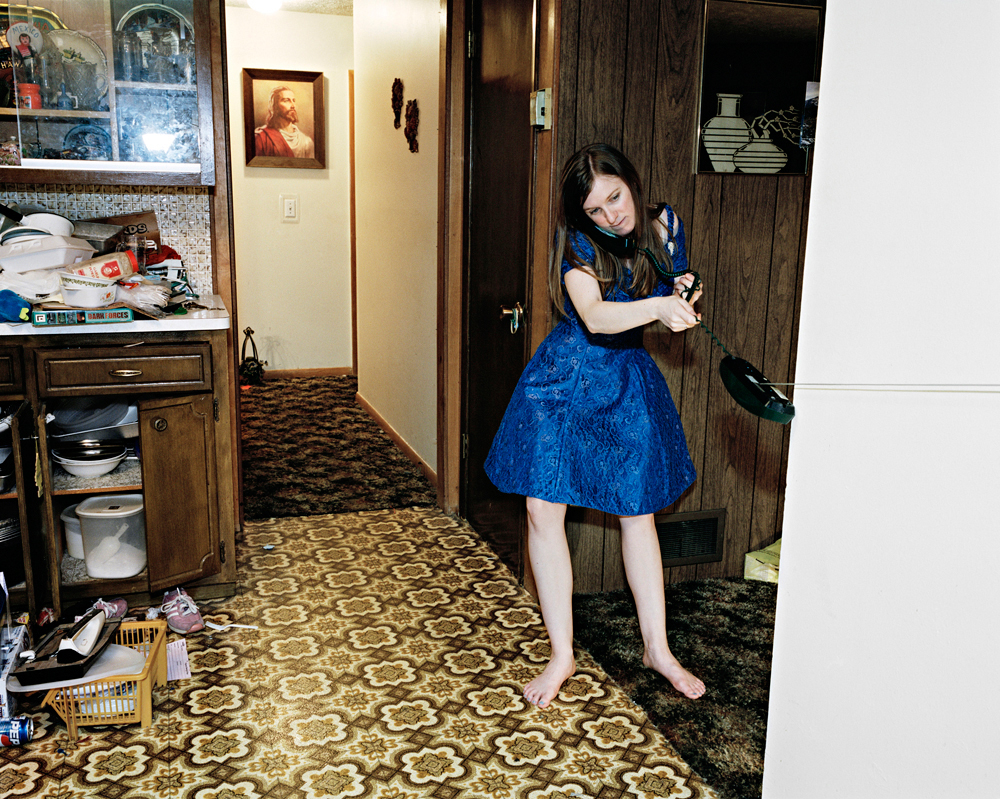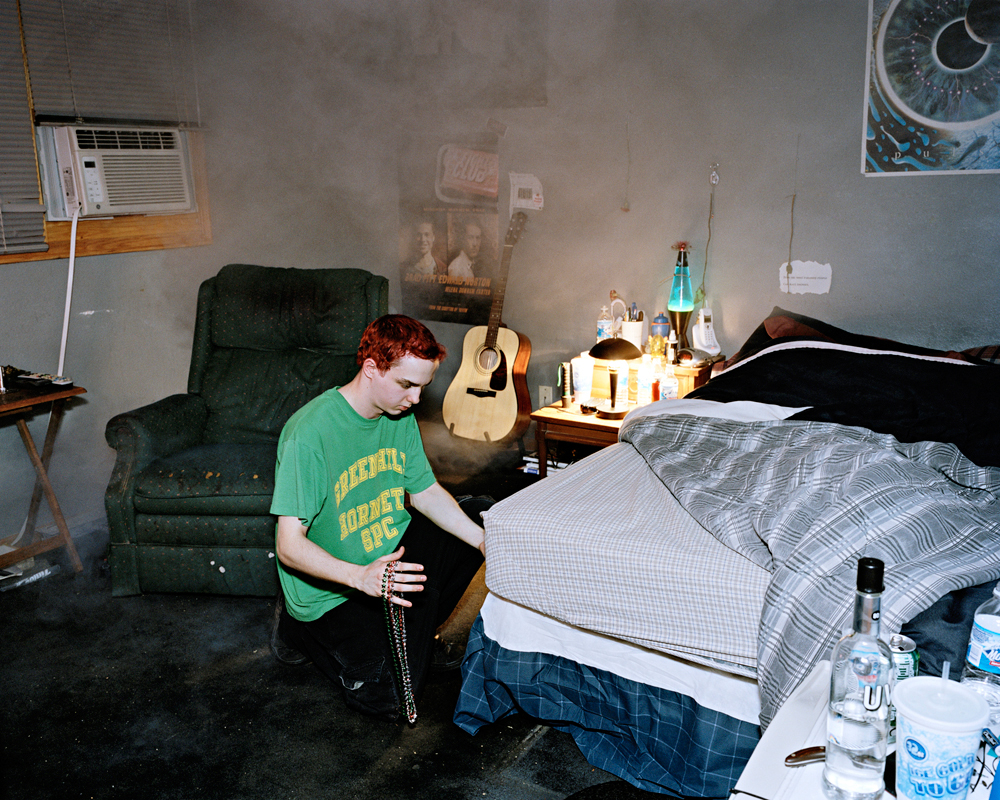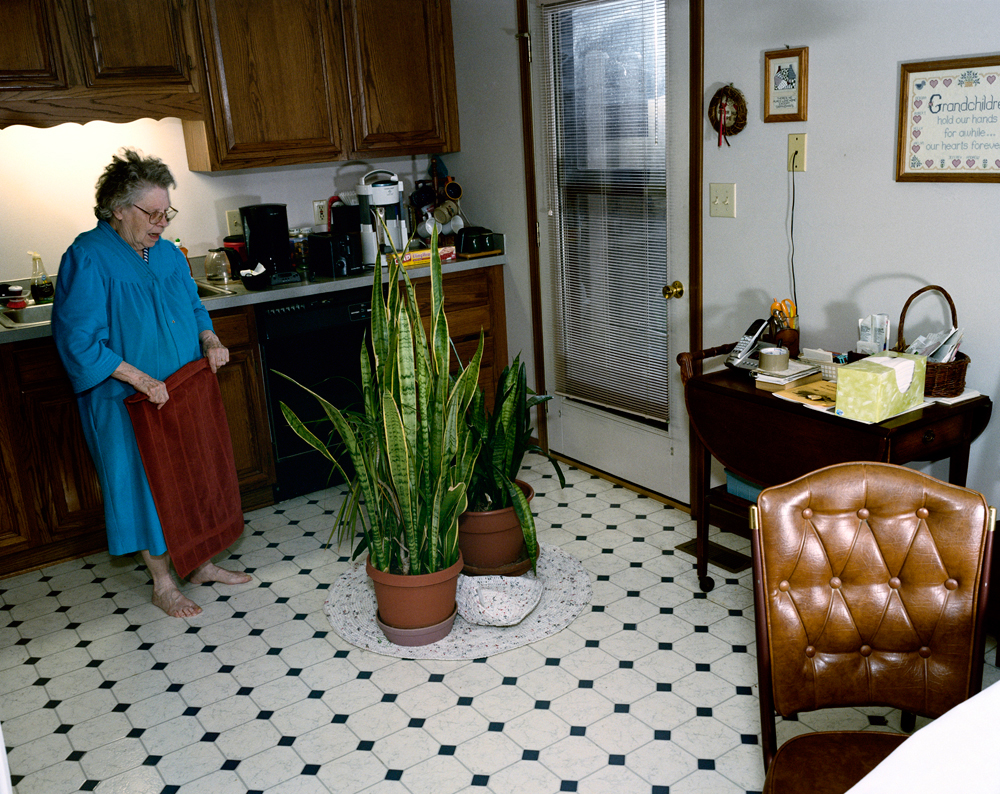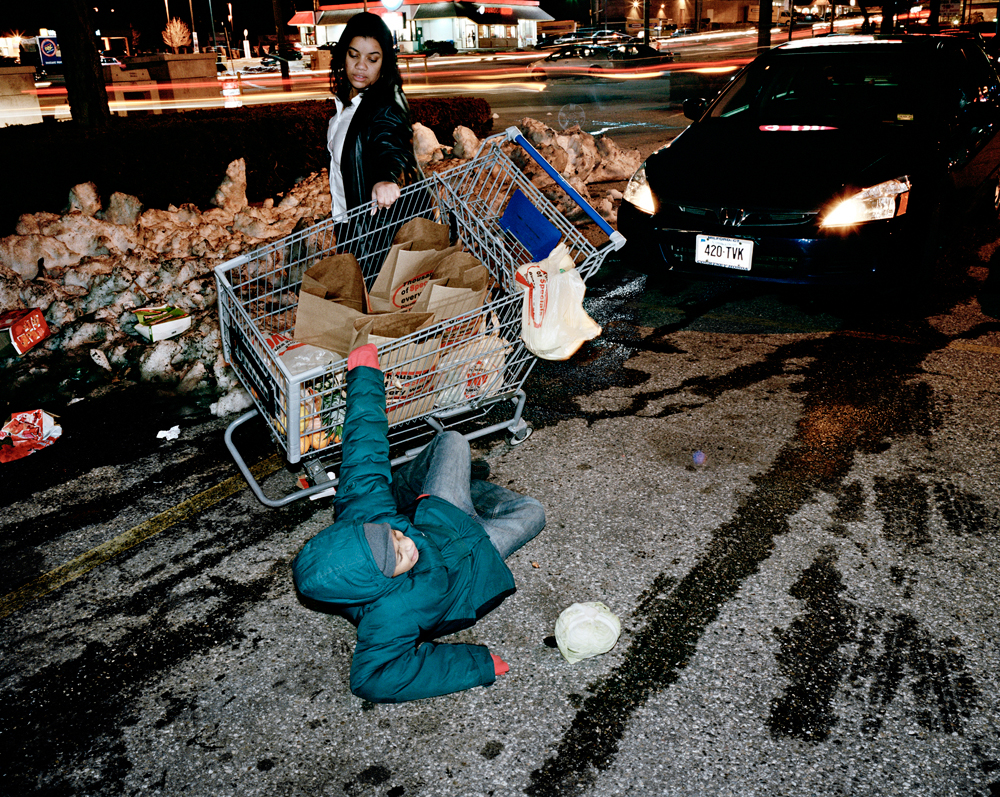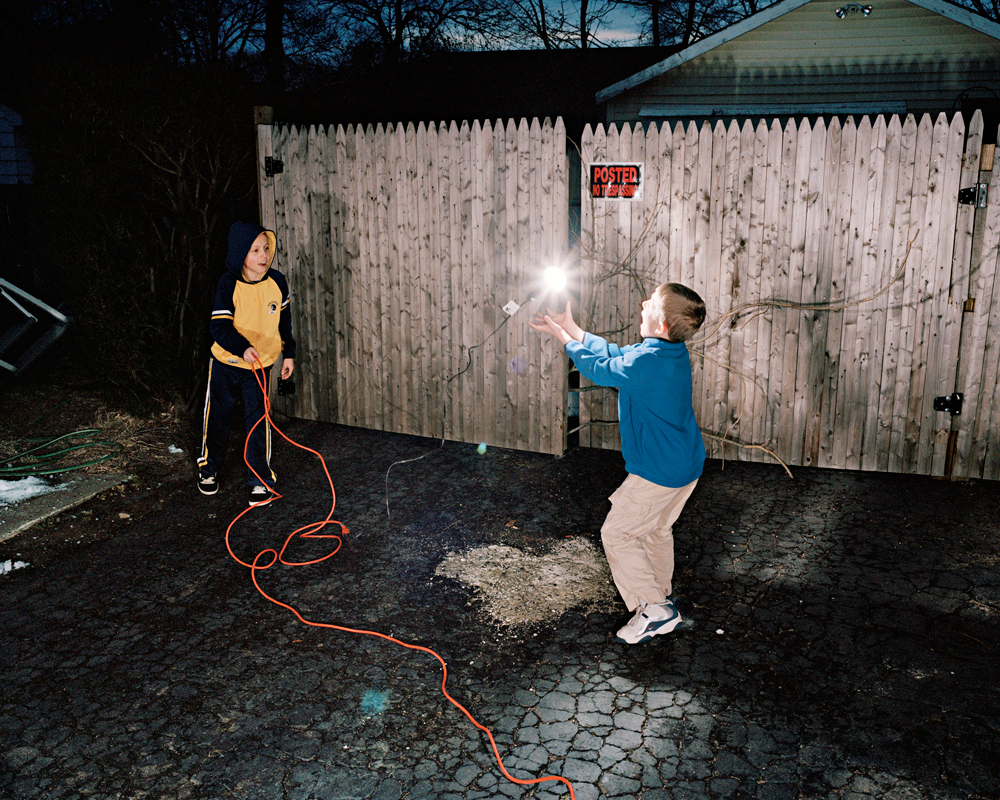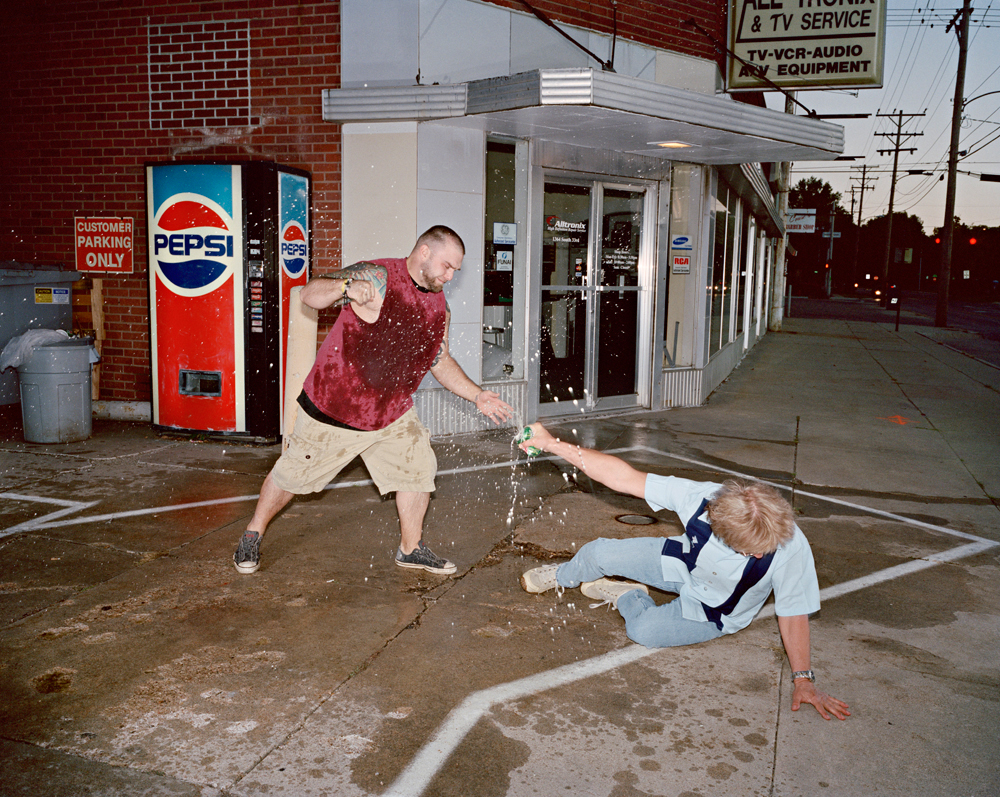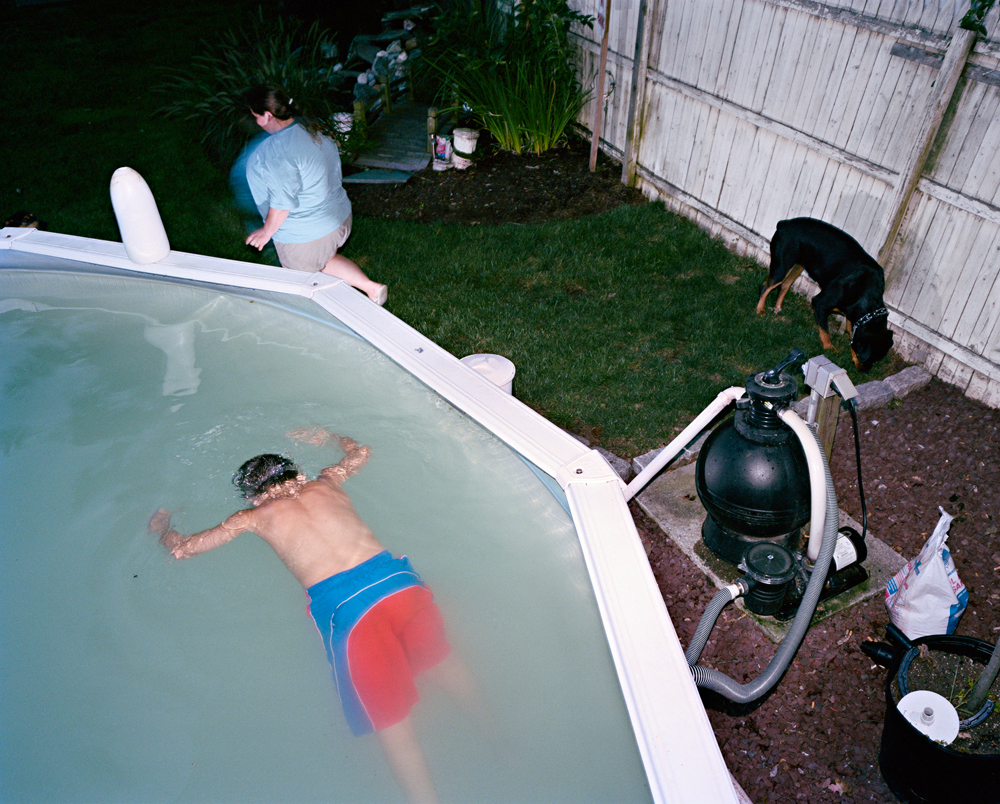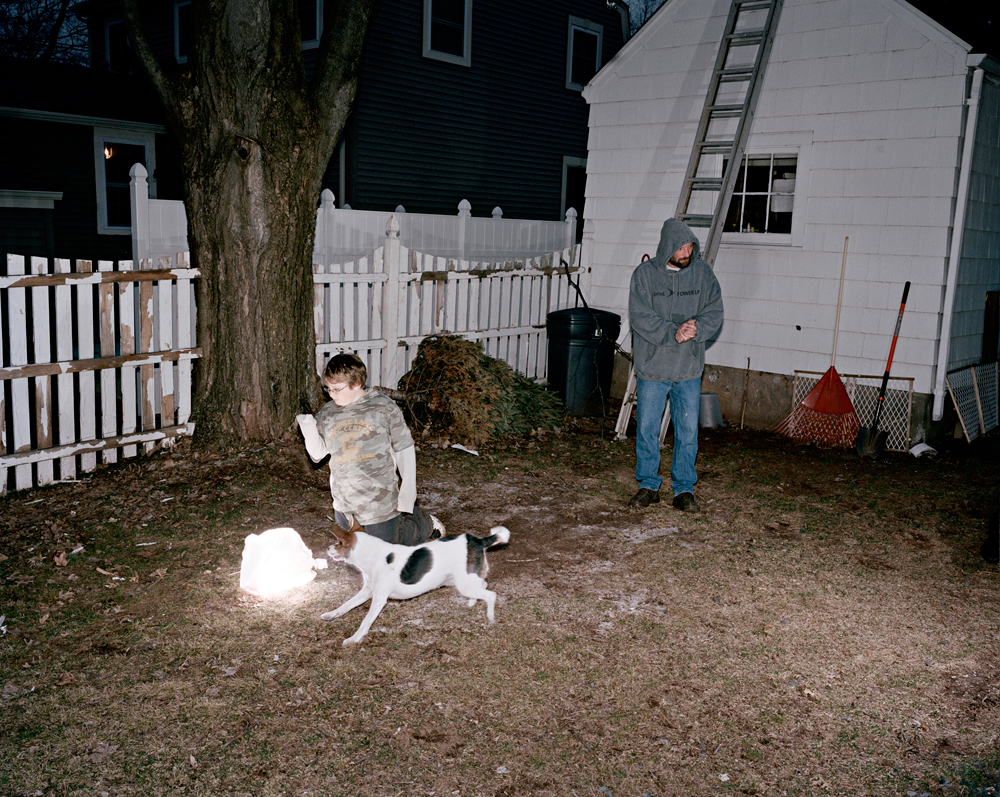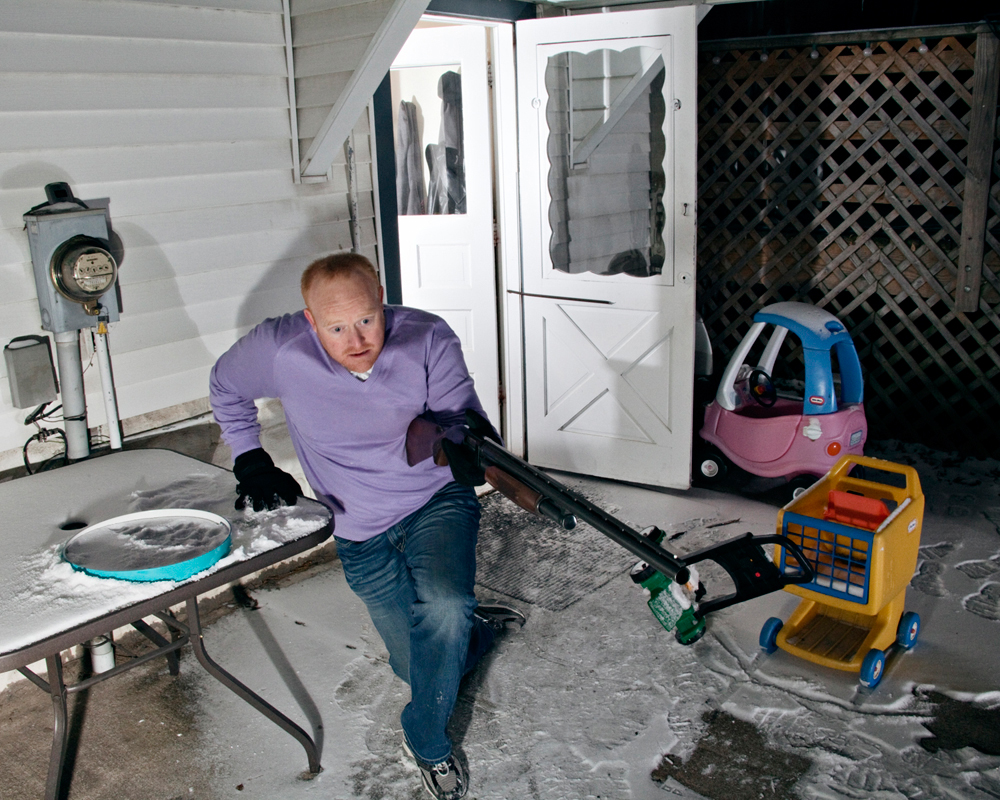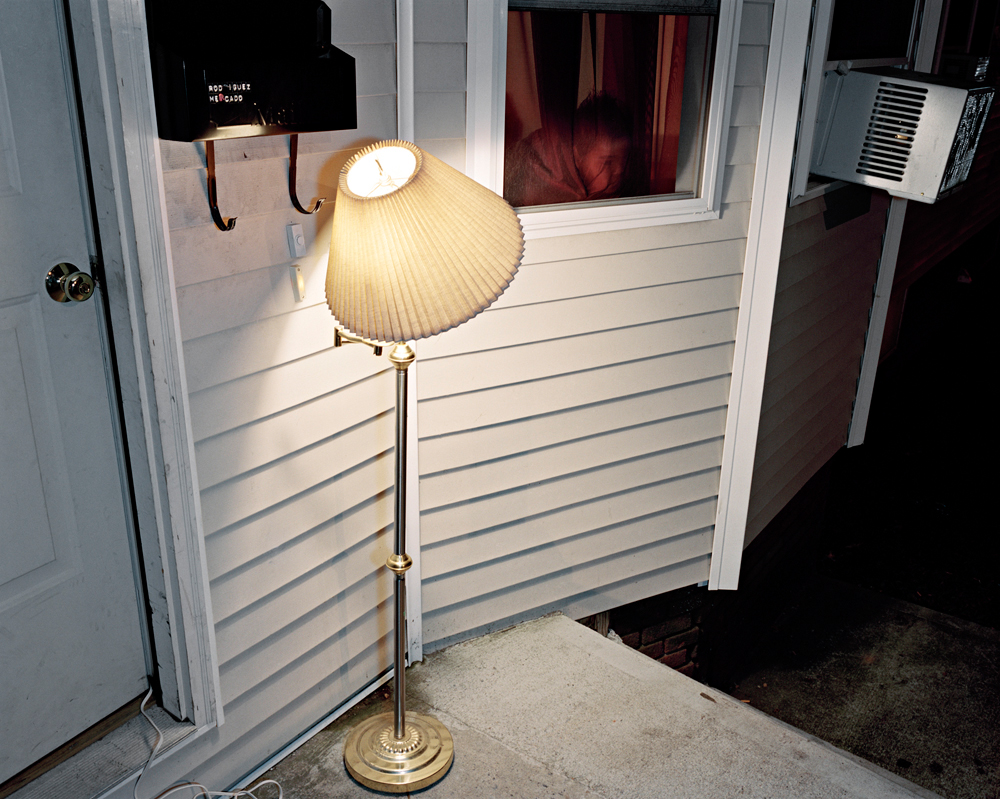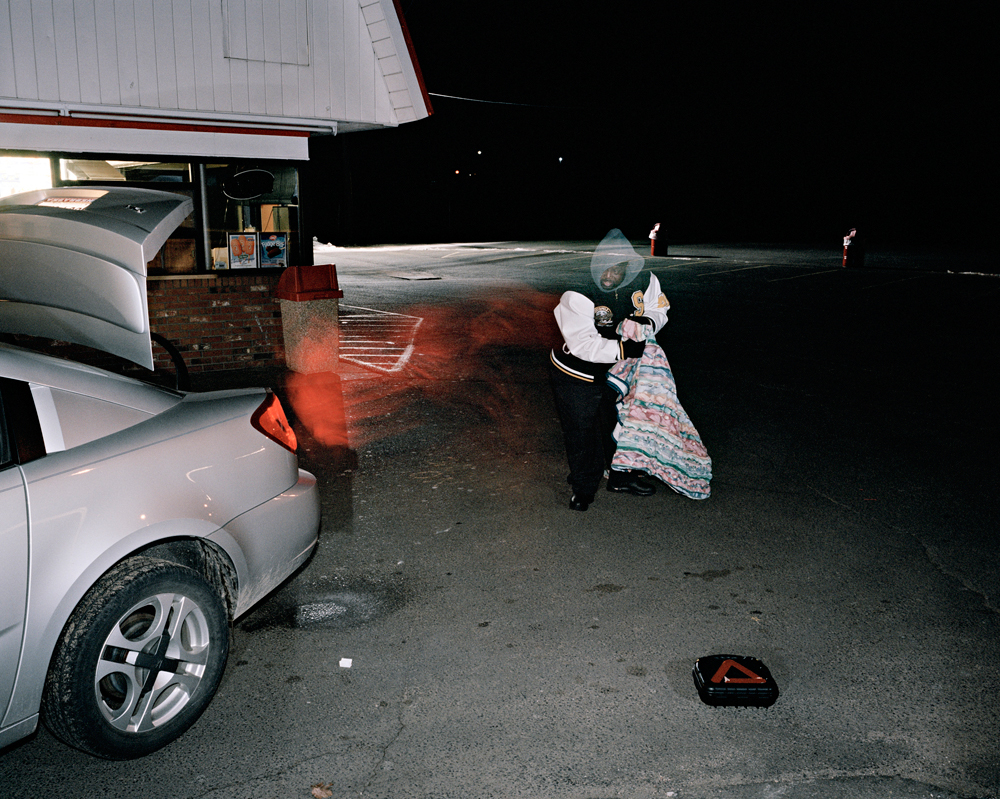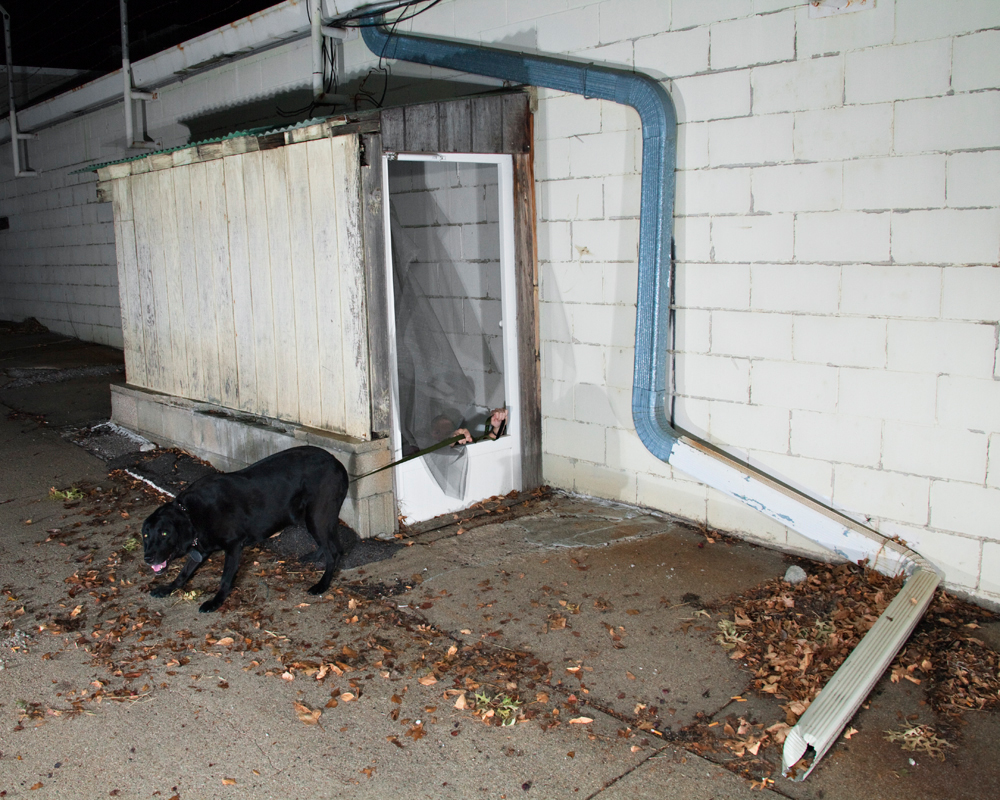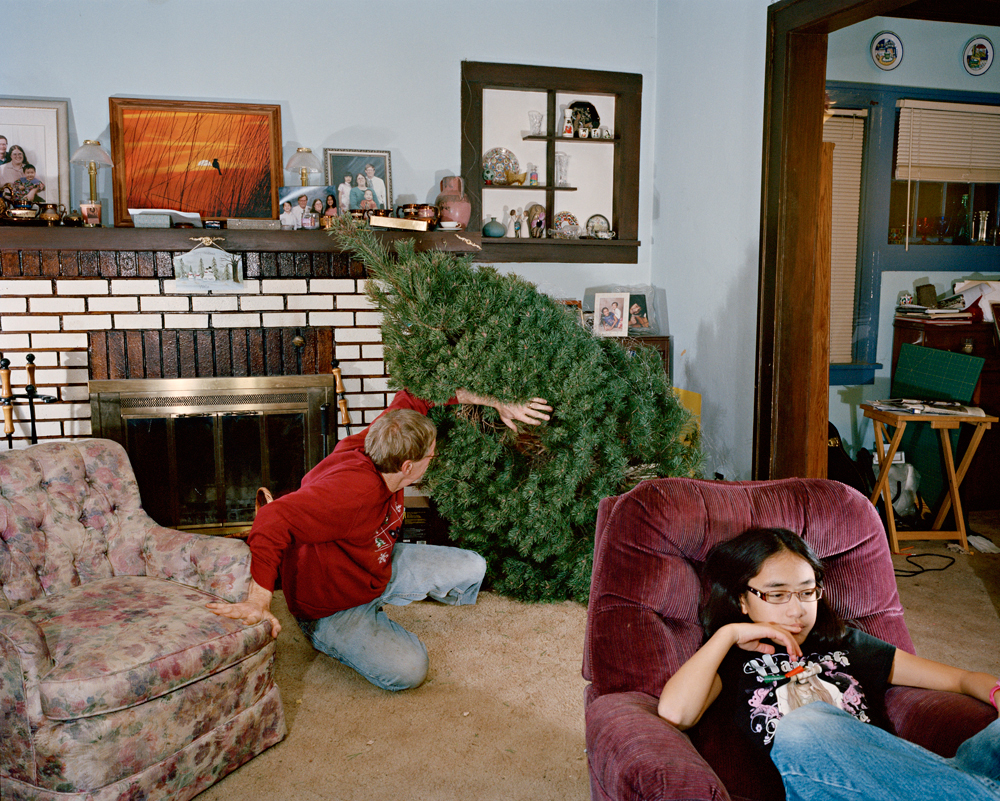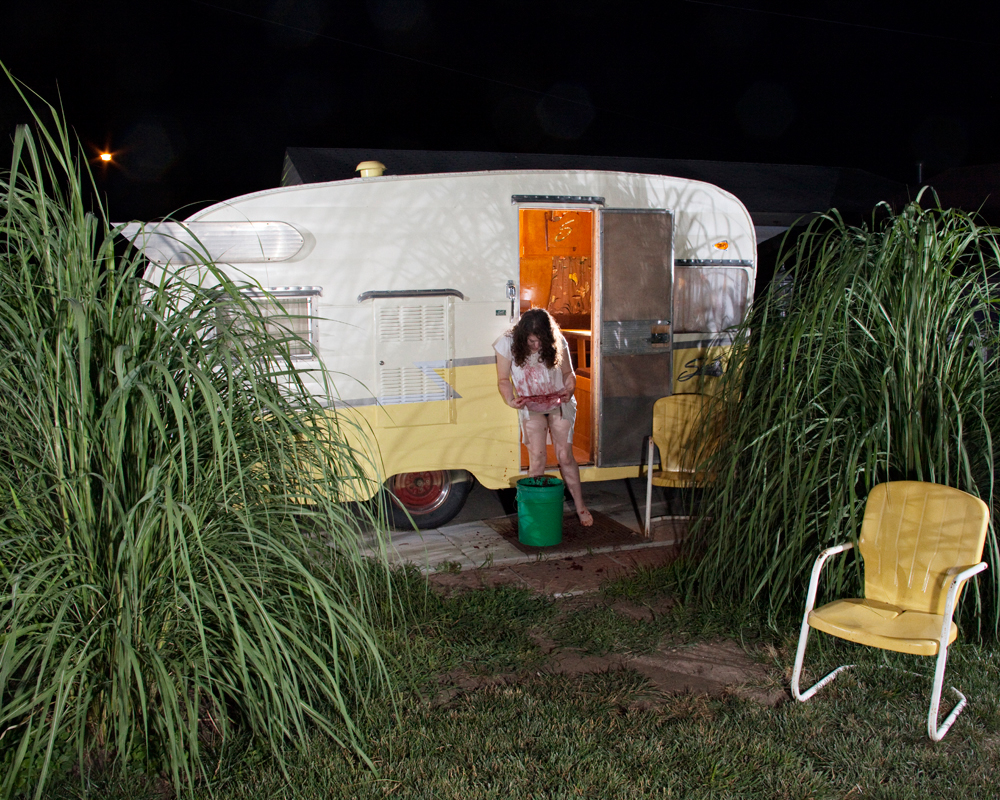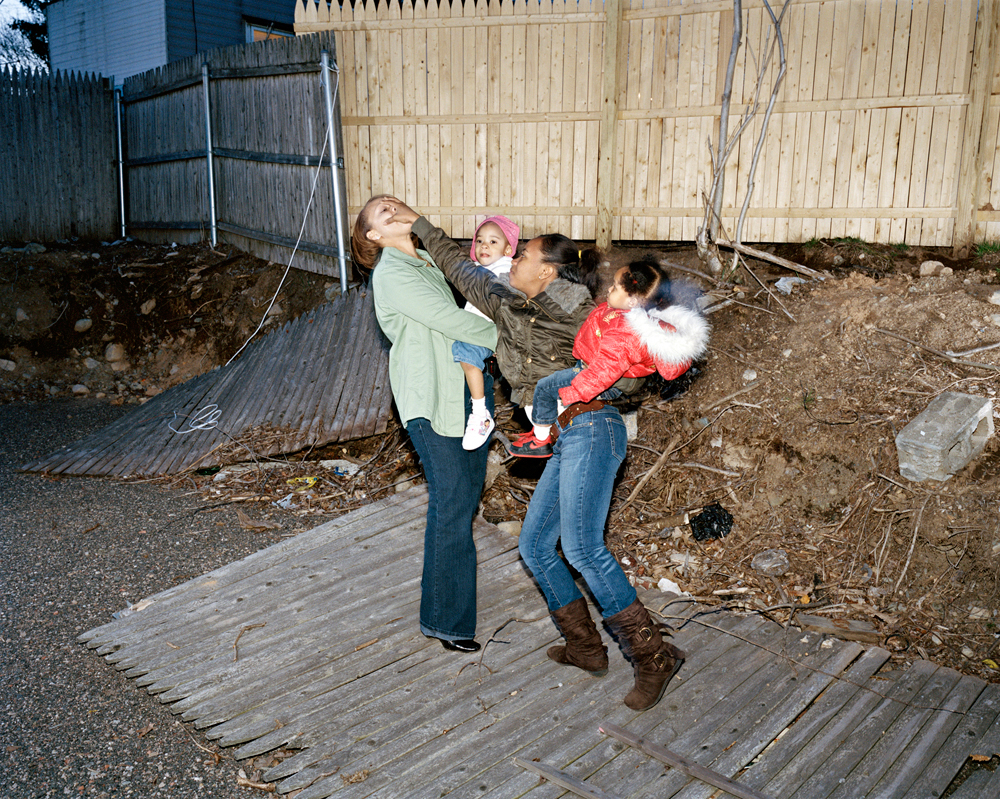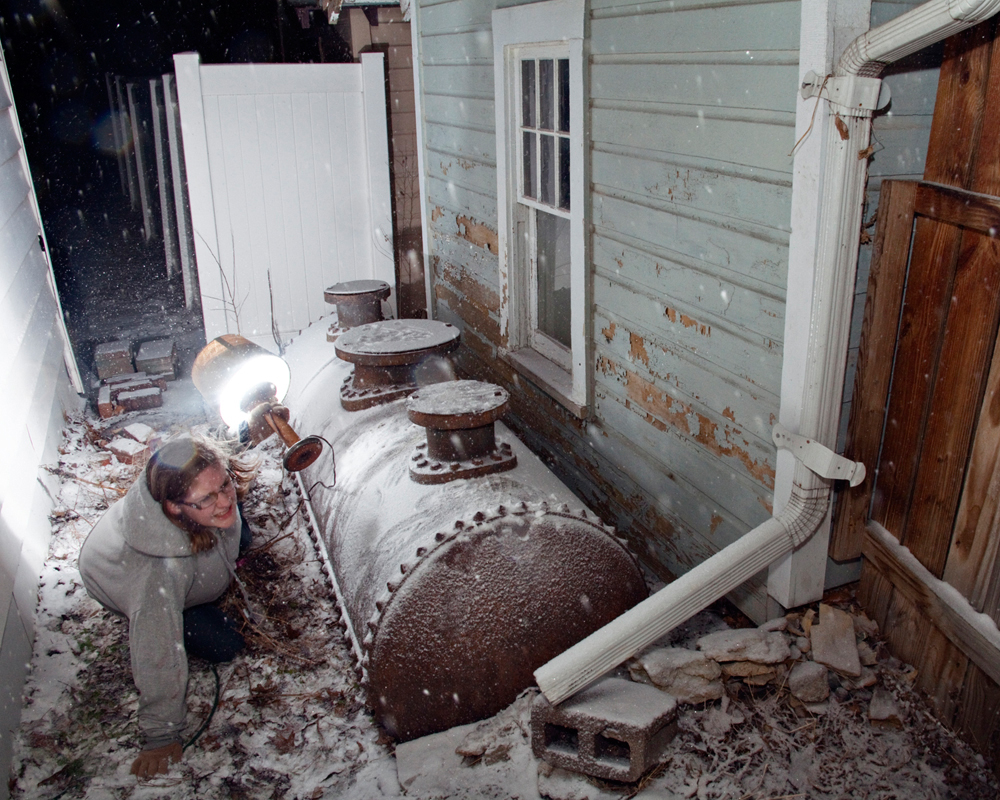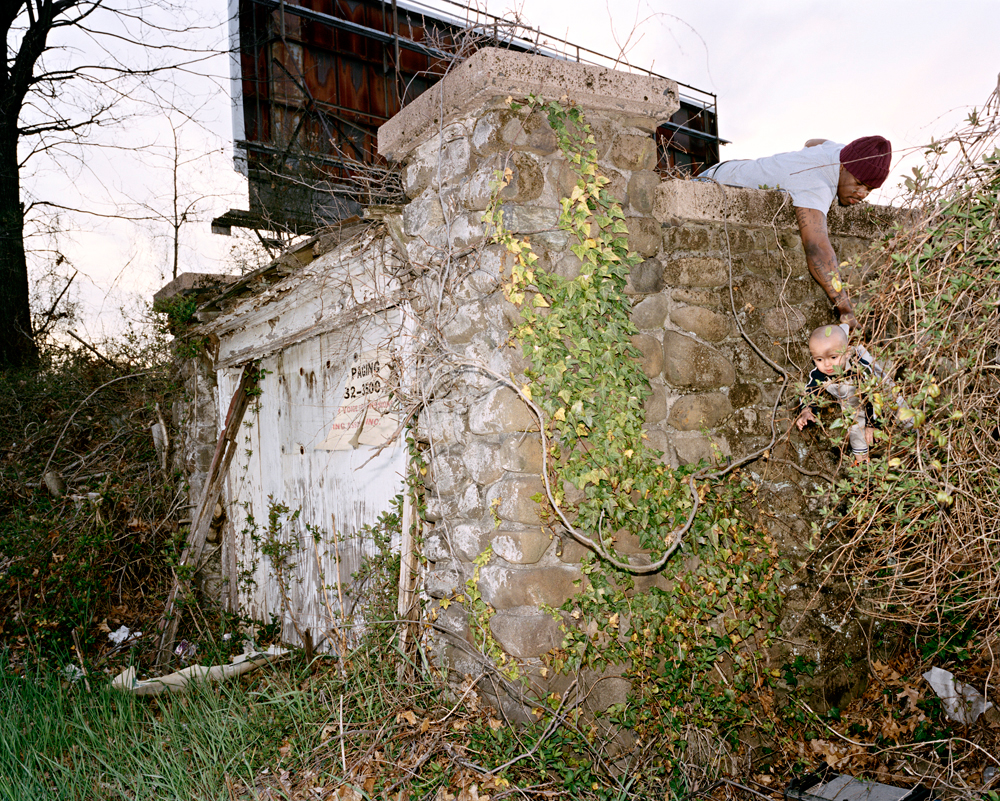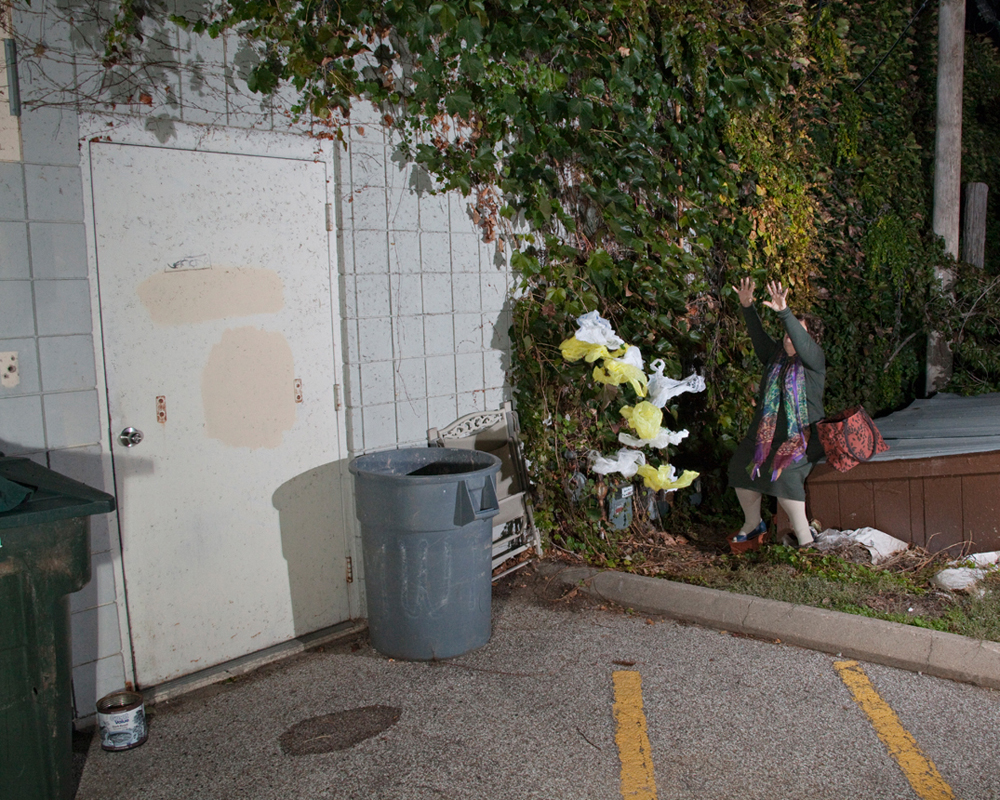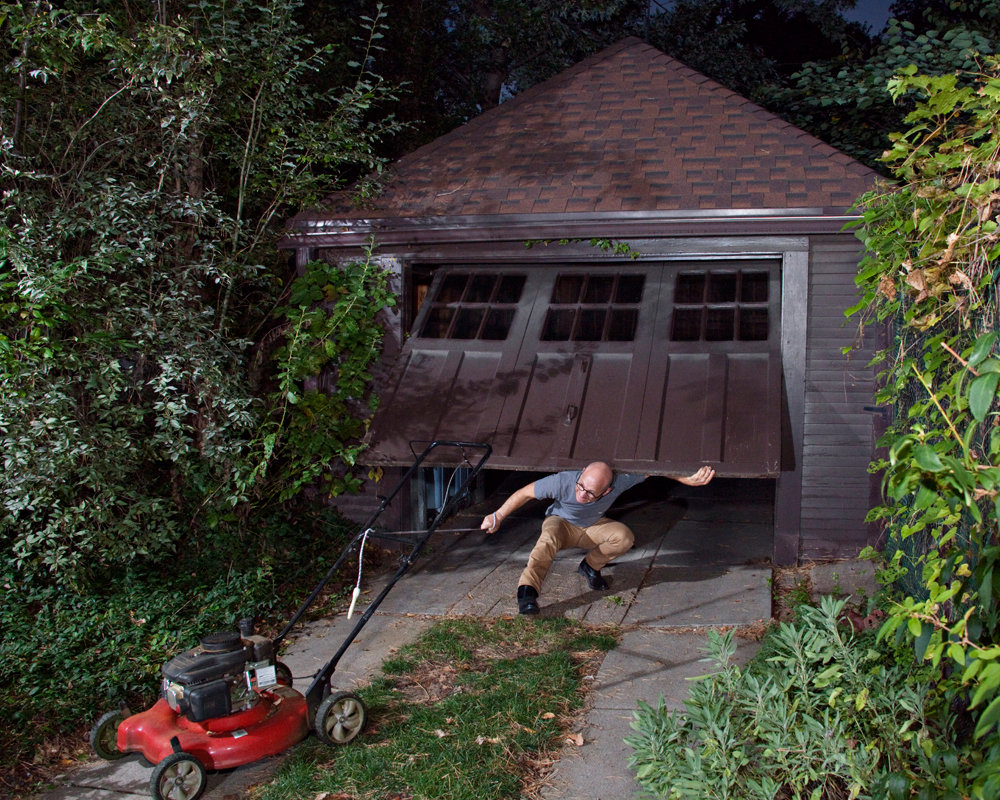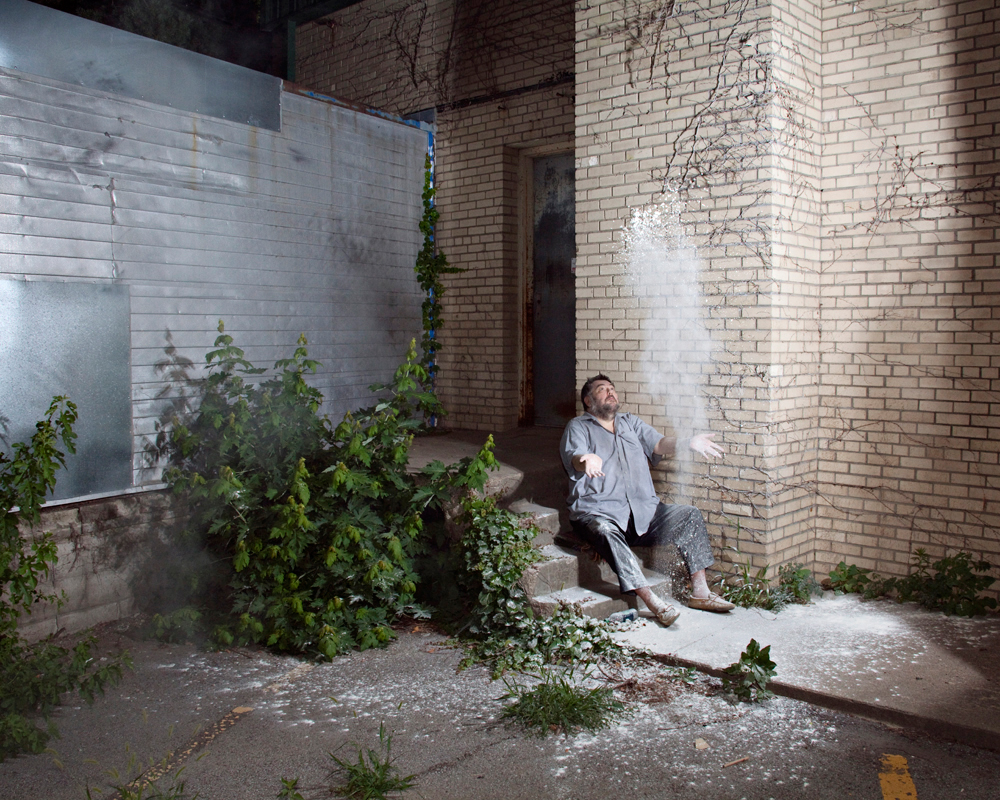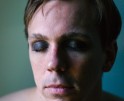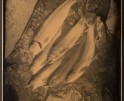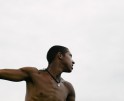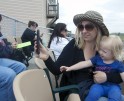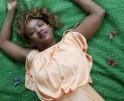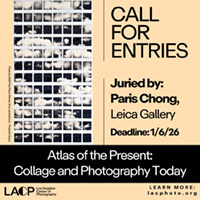Bradley Peters: The States Project: Nebraska
Nebraska takes precedence this week as we continue The Lenscratch States Project, and walking us through the Cornhusker State will be Bradley Peters. Bradley has spent most of his life in the Nebraska, and the variety of work he has selected for this week is a great representation of what this state can bring to the table. Today, though, I am sharing Bradley’s own work. New Matters is an ongoing body of work that speaks in tones of humor and darkness, as we are directed through his complex images of the everyday. These tableaus are built on Bradley’s personal experiences and emotions but are so removed that they become relatable to any person. Below, Bradley elaborates about the project and his process.
Bradley Peters grew up in rural Nebraska where he began his education in photography. In 2008, he received an MFA from the Yale University School of Art while concurrently working a full-time job for a national cell phone company. His work explores the failure of ideas by selecting various anecdotes from his own history and observations and then playing a type of photographic telephone game with his subjects, one that results in a distortion of the original idea. Many of his subjects are people he meets as a customer service representative, and their collaboration aspires to transcend the limitations of literal description and places a greater emphasis on photographyʼs ability to express the metaphorical. Petersʼ decision to use predominantly flash lighting is meant to underscore his desire to subvert from within the tradition of “staged color narrative photography” and also to create tension by injecting the suggestion of authenticity that flash lighting implies in a photograph. Peters likes to think of the work as “documentary photographs, which describe the collision of reality and illogic, bound together by flash lighting.”
New Matters
Over the past two decades there has been an accelerated shift in the public’s relationship to photography. The notion that a photograph is the truth has been replaced with a predisposition of skepticism and saturated disbelief that has permeated into the most basic aspects of our lives. There is a direct correlation to the perceived erosion of photographic truth and a bubbling up hunger for the authentic experience.
This is a defining time for America. It’s an atmosphere of desperation, alienation, anxiety, delusion, and fringe politics. The nation is hyperpolarized and over-the-top theatrics are the norm. I am in search of the visual manifestation of these ideas. Just as the physical force of gravity organizes and connects everything in the world, the psychological nature of struggle has a great physical influence on the shape of things. There is a link between the great and sometimes exaggerated stresses in our everyday life and the overlooked behaviors that fill the majority of our day; for example, how our distress can influence the particular manner in which our hand holds a dinner fork. I am investigating how this period is affecting gesture, interaction, and coping in America by using the language of “staged color narrative photography” and marrying it with flash lighting to subvert from within the tradition. My desire it to let life back into the images and favor the photographic over the painterly.
This project does not aspire to literally document this period; instead it is searching for the visual miracles that may give us insight into what it means to be living at this time. Like many artists, I am interested in our collective American consciousness, but my interest differs by my aspiration to punch photographic cliché square in the face rather than run away from it. Using the polarization of the country as a parallel backdrop, I want to confront cliché by smashing together photographic traditions, in the search for a seemingly more elusive sense of discovery. Just like physicists using the particle collider to discover new matter (Higgs Boson-God Particle), it is my belief that the collision of photographic traditions will reveal something new about photography and give us unique insight into how we are living today. My goal is not to find a moderate stance between traditions of Weegee and Gregory Crewdson, but instead, deconstruct them to create a new hybrid moment.
I am seeking out the public and private domestic life: the basements, backyards, the waiting rooms, and gymnasiums. Exploring physical, financial, and psychological struggle. Examining family, spirituality, and violence all while trying to locate improbable revelation through the tension that is created between spontaneity and theatricality. The semi-performative nature of my work allows for an evolving and open- ended approach that aligns its conclusions more on the side of life than that of art. This body of work is ongoing and the images I come back with will attempt to amplify all that is changing in our common lives.
I see that you attended the University of Nebraska-Lincoln for your BA. Does your history with the state run deeper? Can you give us a sense of where you grew up, and where you’ve been since?
I grew up in a small town about an hour west of Lincoln. I graduated from UNL in 2004 and moved to Austin, TX with my wife. We lived in Texas until 2006 when I was accepted into the Yale MFA program. We lived in New Haven until 2009 when we decided to move back to Nebraska.
New Matters illustrates the everyday American in unique and unusual ways. What inspires your image making?
Almost all the images originate from a personal memory or experience that ends up being distorted and disguised in the photograph. I’m very interested in the “everyday” aspects of our lives especially the moments that seem banal but end up being psychologically charged through their accumulation. We’ve all gotten emotional over something that is seemingly trivial but in that moment it is authentically emotive. The “event” becomes an outlet for everything to be channeled into, a breaking of the dam so to speak.
I am interested in how bodies of work tend to read similarly within a region. Between the interiors, the landscape, and even the type of people that are being depicted, New Matters feels Midwestern to me. Is there intent in this Midwestern aesthetic?
I’m proud to have grown up in Nebraska and it’s undoubtedly had an impact on how my images look but I think the intent is to be true to myself. I’m not an artist who is going to turn out a new project every 2 years or is trying to ride the New Formalism wave. My process is very slow and difficult and that is going to be true regardless of my zip code.
Can you elaborate more on this slow process of making an image, leading us from the conception of an idea through the production?
I have two notebooks; one contains locations and the other experiences and memories. I try to pair items from each notebook together so they can amplify each other’s potential. Then I condense everything down into a very generic description of the items that I then put into Google Image, “woman carrying lemons,” for example. I spend a lot of time looking at the images generated by this search; some are very obvious and others are not what I would have expected. I’m very interested in bad ideas and the internet is a good place to find them. I take what I learn from these images and try to do whatever it takes to ruin my original concept once the shoot starts. I want the whole thing to fail in an amazing way. Again, my goal is distort and disguise my personal experiences. I’m not attempting to recreate or illustrate them; instead I’m trying to create my own personal punctums. So with the example I gave earlier, “woman carrying lemons,” the original idea was from a very specific memory I had while working at a Chinese restaurant in my hometown, but, when I was looking at the search results on Google there was an image of a woman holding her pregnant belly on the first page. Seeing this image at that exact moment was like a punch in the gut. My wife had just experienced her second miscarriage a couple days earlier and I was just blown away by the fact that an algorithm had just made me cry uncontrollably. I know that my image doesn’t scream “personal loss” but I get emotional every time I look at it. Everything that I just described is very difficult to put on a time clock. There are so many variables that have to align or fail in just the right way.
Are you currently working on any Nebraska based projects?
New Matters is primarily a Nebraska based project. I know that many photographers feel invigorated by travelling or going on road trips but I’m the opposite. The majority of my images are made within a two-mile radius of my house regardless of where I’ve lived. I spend a lot of time looking without a camera. Instead of searching for the exotic, I want to make the familiar, metaphorical.
Describe your perfect day.
Coffee, charged batteries, wife and kids.
Posts on Lenscratch may not be reproduced without the permission of the Lenscratch staff and the photographer.
Recommended
-
Rana Young: The States Project: NebraskaMarch 20th, 2016
-
Larry Gawel: The States Project: NebraskaMarch 19th, 2016
-
Walker Pickering: The States Project: NebraskaMarch 18th, 2016
-
Shelley Fuller: The States Project: NebraskaMarch 17th, 2016
-
Jonnie Andersen: The States Project: NebraskaMarch 16th, 2016

